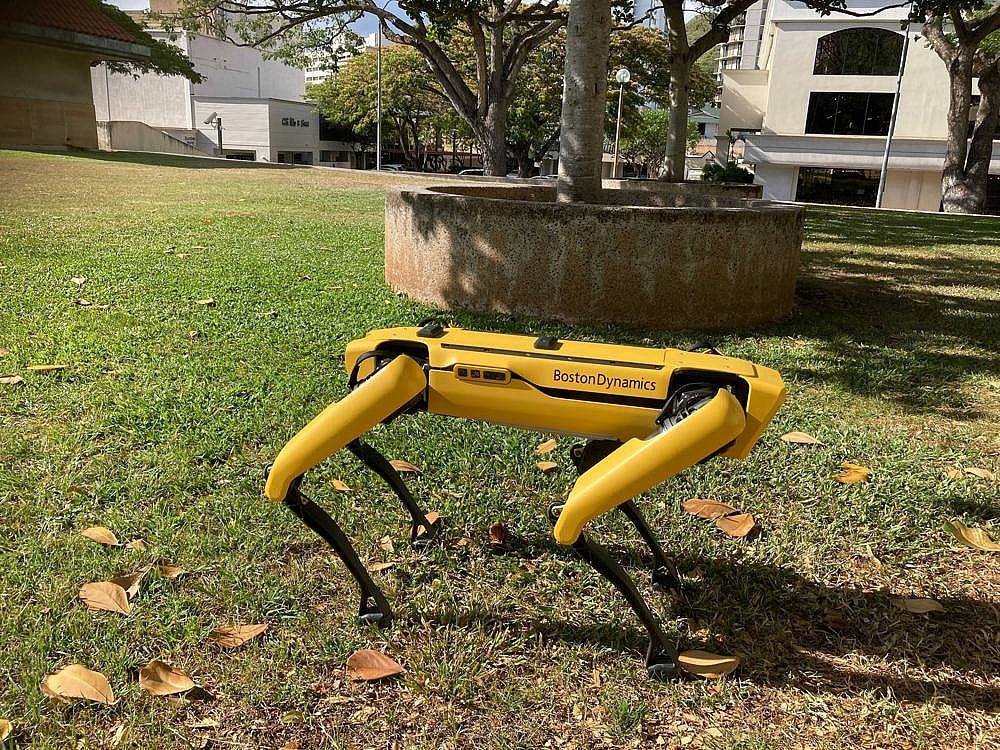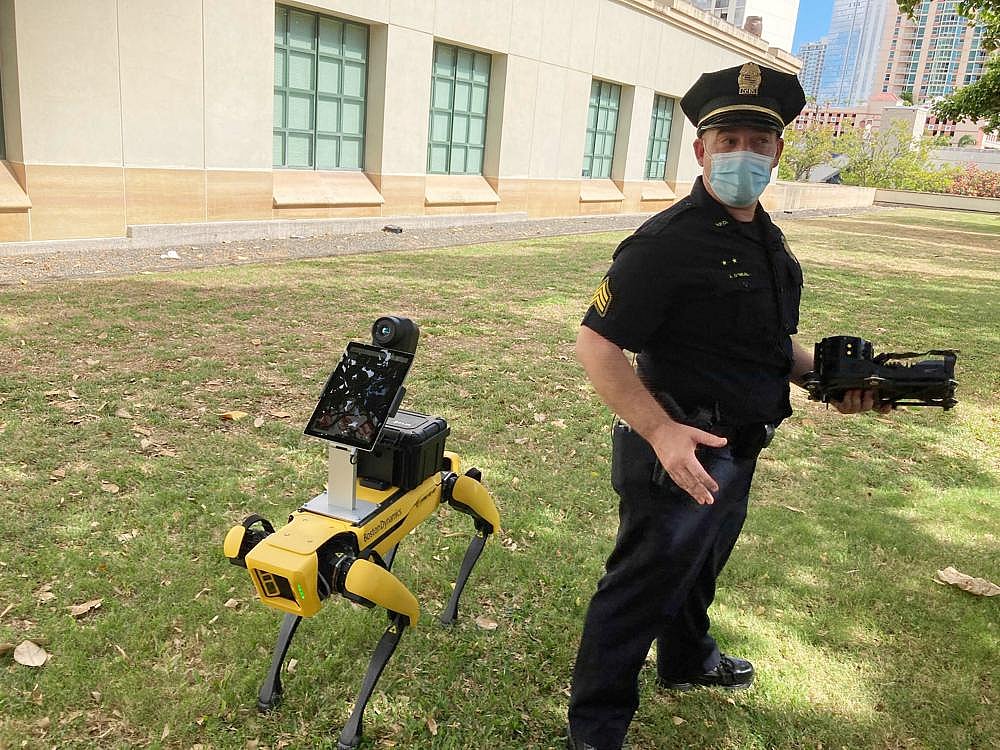Robotic police dogs are popping up in some cities across the United States in what police departments are calling advanced technology to help them fight crime. The robots, manufactured by Boston Dynamics, have been tested out by New York City, Massachusetts, Washington D.C. and Honolulu’s police departments.
In the spring of 2021, lifelong New York City resident Raenel Ross spotted “Digidog,” a robotic dog acquired by the New York Police Department, and questioned whether people’s civil rights were being violated.
“It all boils down to ethics,” Ross told theGrio. “Robots don’t have the human perspective to make moral decisions, but maybe robot dog won’t mistake a wallet for a gun.”

Boston Dynamics says the four-legged device can walk on various terrains, open doors, record video and even dance. The manufactured animals range in cost from $94,000 to $150,000 and have been met with public outcry on one end and ambivalence on the other.
“We lost the battle over ‘Defund the Police,’ but those same departments have the money to pay for robot dogs and militarized tactical equipment when school districts in those areas are suffering,” said Chivona Newsome, co-founder of Black Lives Matter of Greater New York.
However, in new polling from Pew Research Center the share of adults who say spending on policing in their area should be increased now stands at 47%, up from 31% in June 2020. That includes 21% who say funding for their local police should be increased a lot, up from 11% who held that view this past summer.
Broken down even further by race, views on police spending also differ from a year ago. In the research, white (49%) and Hispanic (46%) adults are more likely than Black (38%) or Asian (37%) adults to say spending on police in their area should be increased. Black adults (23%) are more likely to say that police funding should be decreased than those who are white (13%) or Hispanic (16%). Some 22% of Asian adults say spending should be reduced, which is statistically higher than the share among white adults but not higher than the share among Hispanic adults.
Police accountability was called into question in 2020 after the murder of George Floyd in Minneapolis. People across the country sitting home during a deadly pandemic had time to focus on police brutality, which ballooned into nationwide protest and renewed a call for police reform.
“Communities should take a hard look at expensive, rare-use technologies at a time when the nation is increasingly recognizing the need to invest in solving our social problems in better ways than just empowering police,” said Jay Stanley, Senior Policy Analyst with the ACLU Speech, Privacy, and Technology Project.

Michael Perry, an executive at Boston Dynamics, in an interview earlier this spring said that out of the roughly 500 robotic dogs that are in use worldwide, most are being used by utility companies, as well as construction sites or in other commercial settings that involve dangerous situations. Perry added that only four of the devices were being used by police departments.
Perry’s statement on the matter was later followed up by a Boston Dynamics spokeswoman, who echoed that the company’s robots were “not designed to be used as weapons, inflict harm, or intimidate people or animals.” However, Black Lives Matter of Greater New York co-founder Chivona Newsome said it would only be a matter of time before the potential for that became a reality.
“We need to absolutely reimagine public safety in a way that is actually safe and equitable for all folks in America not depending on your socioeconomic status or at the very root of it your race,” she said.
In New York City, the robotic dog was sent back to Boston Dynamics after only working with the police department for a short time in part over concerns that it was being used specifically in minority neighborhoods and communities.
“The deployment of advanced technologies like robots all too often happens faster than our social, political, and legal systems can adjust. This kind of robotics technology threatens to veer off in all manner of spooky directions; clear and forthright policies, overall transparency, and democratic debate and input are vital,” Stanley said.
Meanwhile, Black Lives Matter of Greater New York is equally as passionate about making sure reform is transparent. The group may have lost its battle with defunding the police at this time, but its leaders are in no way giving up the fight.
“What we are doing and continue to do is get people elected that can move in and tackle our mission to get the police department defunded and that way won’t see communities of color terrorized and traumatized,” Newsome said.

Kelsey Minor is a two-time Emmy award-winning freelance reporter based in New York City. You can follow his work on Twitter @theKELSEYminor.
Have you subscribed to theGrio podcasts, Dear Culture or Acting Up? Download our newest episodes now!
TheGrio is now on Apple TV, Amazon Fire, and Roku. Download theGrio today!

